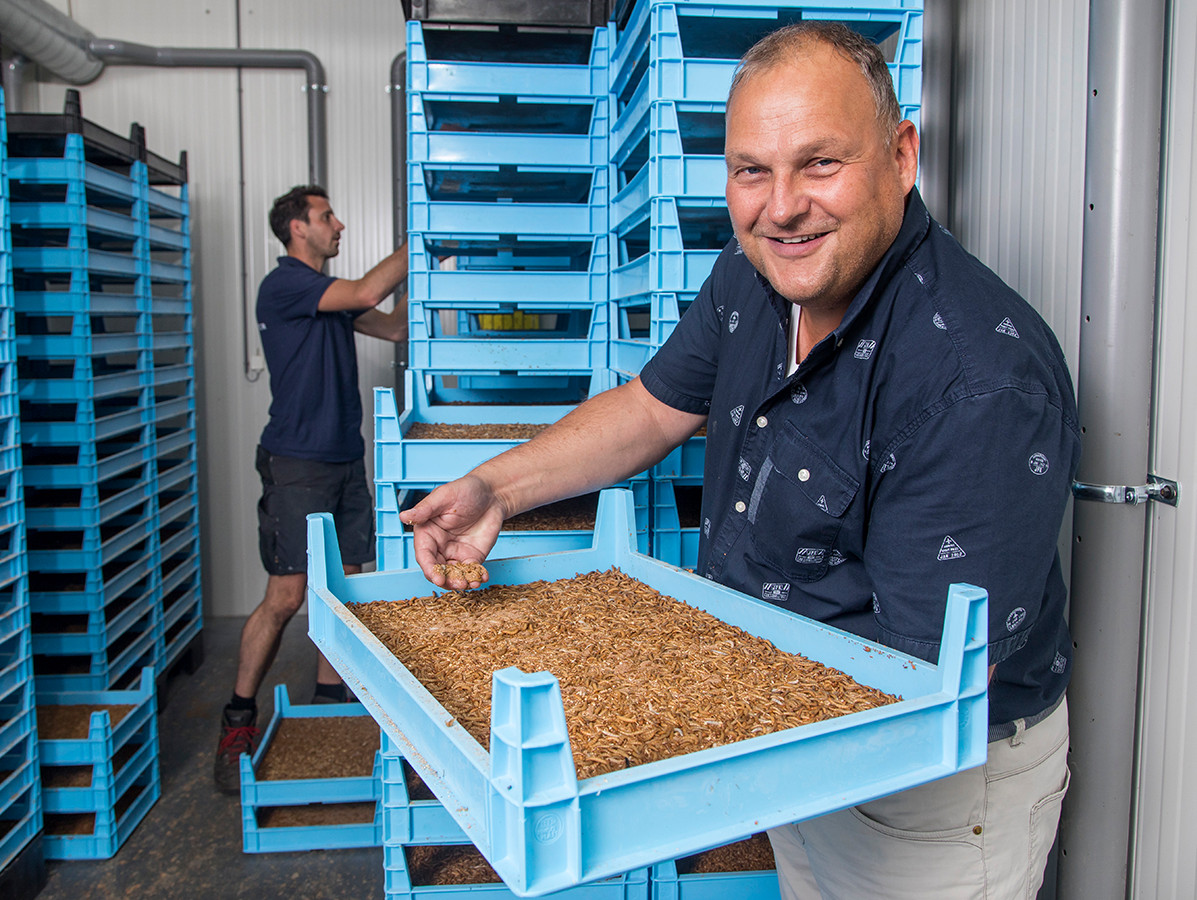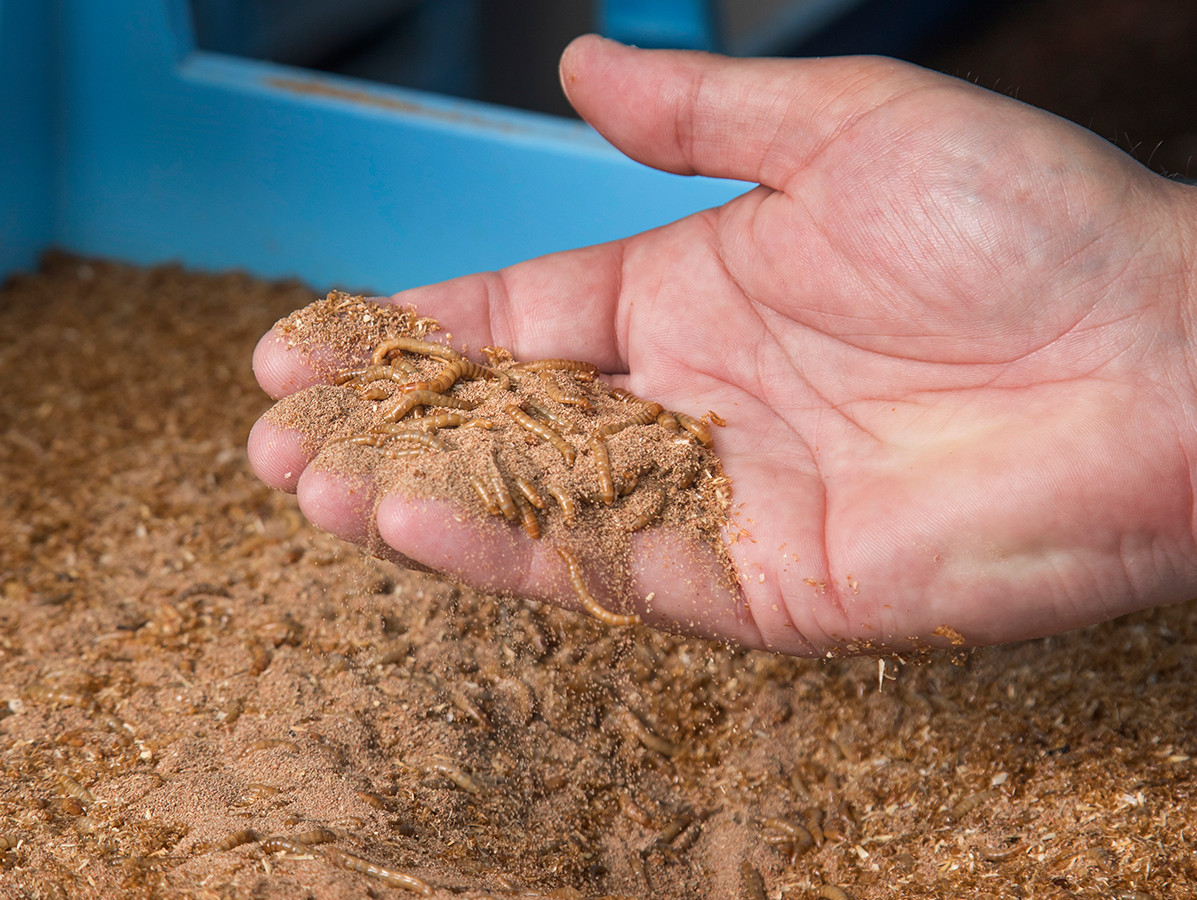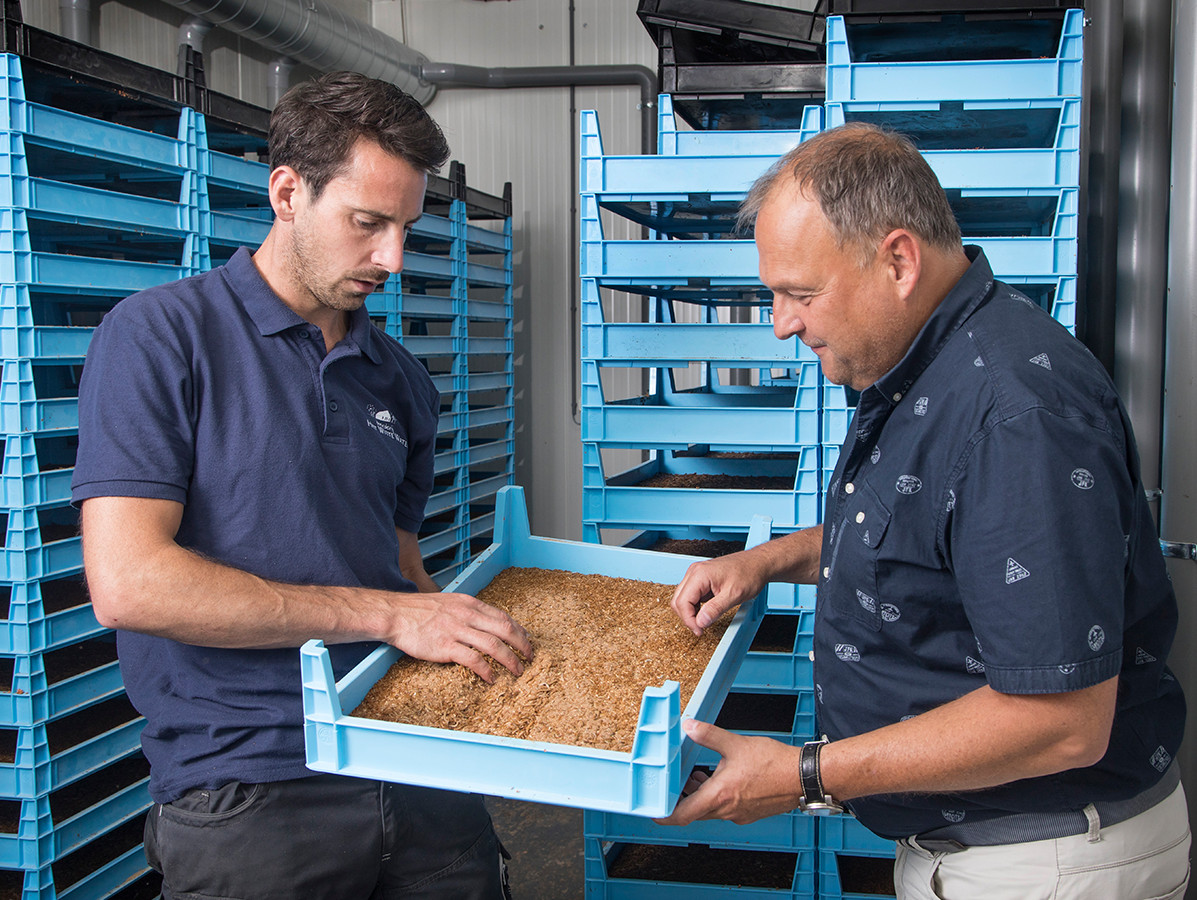
Bug breeding for the food industry "will certainly grow", but there are still some bumps ahead: legislation, consumer acceptance and further automation. There is also a lack of knowledge sharing and cooperation in the chain. Wicha Benus, knowledge broker protein transition, helps to overcome the obstacles.
He admits: he was not immediately sold at the thought of a bitterball (Dutch snack) with mealworms. But that doesn't make his current role as a knowledge broker protein transition as remarkable as it seems. "I love the innovation drive of entrepreneurs," explains Wicha Benus. "More than two years ago, from my job as an innovation broker, I saw more and more agricultural entrepreneurs engaging in the breeding of insects. But they often lacked knowledge and reference material. Although this is a relatively young market, there is plenty of knowledge available at home and abroad, but it is fragmented and difficult to tap into. I connect these searching entrepreneurs to relevant parties: knowledge institutes, entrepreneurs, governments and potential financiers and customers," says Benus. He prefers to call himself 'connector rather than expert', he says at the beginning of the conversation with Vakblad Voedingsindustrie. But that turns out to be modesty, because with contagious enthusiasm he talks wholeheartedly about the possibilities and advantages of insect breeding.
"Of course, I don't expect that we can generate 100% of our protein requirements from insects. I am committed to a diet that contains a mix of traditional and new sources of protein. Insects have great nutritional value - they are rich in protein and contain vitamins, minerals, fiber and fat. As is well known, the development of new protein sources is necessary to meet the growing demand of the world's growing population. The advantages of insects over animals such as chicken, pigs and cattle is that they have a higher reproduction rate, faster life cycle and lower feed conversion. They can also be used in a circular food system to valorize residual flows. The black soldier flies for example eat anything, even manure. But they can also be used in the processing of residual flows from the food industry and catering industry. They are then converted back into animal feed. In addition, land use and CO2 emissions during the production of insects are lower. In comparison with beef, these differences are enormous".

"That's right, only about 10 to 15% is now destined for food. By far the largest part goes to aquaculture and pet food and a small part to animal feed. The total volume from 2017 was calculated at 5000 tons; it is expected that three million tons of insects will be cultivated in Europe in 2030. The volume for food will certainly grow along with it. At present, buffalo worms and mealworms are mainly used in the food market. They are used in bakery products, sports drinks and bars, pastas, meat and meat substitutes, among other things. Grasshoppers and crickets are also on the rise for human consumption. In recent years, more farmers have started breeding insects as a sideline activity. On the one hand for extra income, on the other hand to provide their own livestock with sustainable proteins in the future. But I see a growing interest in new production locations. That does require a thorough investigation: what does the market look like? What about permits, and legislation and regulations? That knowledge is needed to make a well-considered decision as to whether it really suits the entrepreneur, but it is now difficult to obtain. We are only at the beginning.”
"First of all, we need to broaden the laws and regulations. In addition, there will have to be automation throughout the entire chain. Only then can the volume grow and the branch become interesting for the food industry. So machines must be made available that can grow insects that meet market demand in automated and conditioned circumstances. Also things like track and trace and the processing of insects are necessary. At Regio Foodvalley, where I work, the focus is on guiding medium and small sized capital. We encourage them to join forces, so that together they can form a serious party for the industry. Collaboration in the chain is a necessity."
"Well, I recently spoke to a cookie manufacturer who is scanning the possibilities, but also indicates that his consumers are not yet ready. The mandatory labeling with, for example, an indication that mealworm has been added, however justified, scares manufacturers even more. Consumer acceptance takes time, for the time being products with insects are not yet a commodity. At the moment these products are mainly eaten by enthusiasts and sportsmen. This acceptance will go through intermediate steps: first the products that contain insect meal. And I expect to see whole crickets and grasshoppers on the shelves sooner than complete worms, which have a more negative association. The obstacle is in our heads, in Asia and Africa they have been eating insects for centuries. In China, for example, they are also further developing products with insects. But in terms of sustainability and circular systems, it is of course better to give the sector a boost in Europe. I therefore expect that under pressure from the public debate about non-sustainable proteins, the protein content in foods derived from insects will grow. Meat substitutes were not immediately embraced either, but are doing very well now."

Rowin Batterink (left) and Wicha Benus
"Products made from insects belong to the novel foods. For the feed industry, of course, less strict rules apply than for human consumption. Currently, under certain conditions, only seven insects may be used for the food industry, including two types of buffalo worms, two types of crickets, a kind of silkworm and a type of grasshopper. There is huge lobbying in Europe to relax the legislation, and that is expected to happen this year".
"My call is to investigate how you can incorporate insects or a derived ingredient into products: for example, how can you replace common protein with insect protein? And how can you make use of the often nutty taste? That can really benefit your product. Also see what other applications are possible, what processing is required and how you can make the products more sustainable by, for example, adding insect protein to meat or vegetable products. Especially for manufacturers of pasta, sports drinks and bars, pasta, meat and meat substitutes insects can be very interesting. And the elderly need more protein, so in view of the aging population I also see a lot of potential for products with insects for that target group".
Wicha Benus (1971) is an independent entrepreneur and works as an innovation broker and connector. With his knowledge and expertise he supports innovative entrepreneurs and organizations, especially in the field of sustainability. Benus is also active as a knowledge broker protein transition for Regio Foodvalley.
Photos: © Koos Groenewold
Source: Vakblad Voedingsindustrie 2020